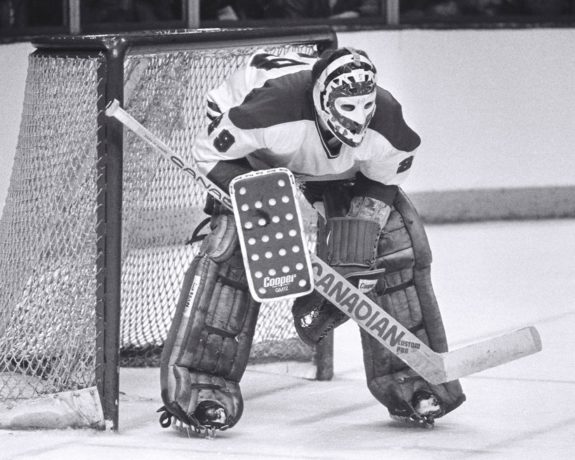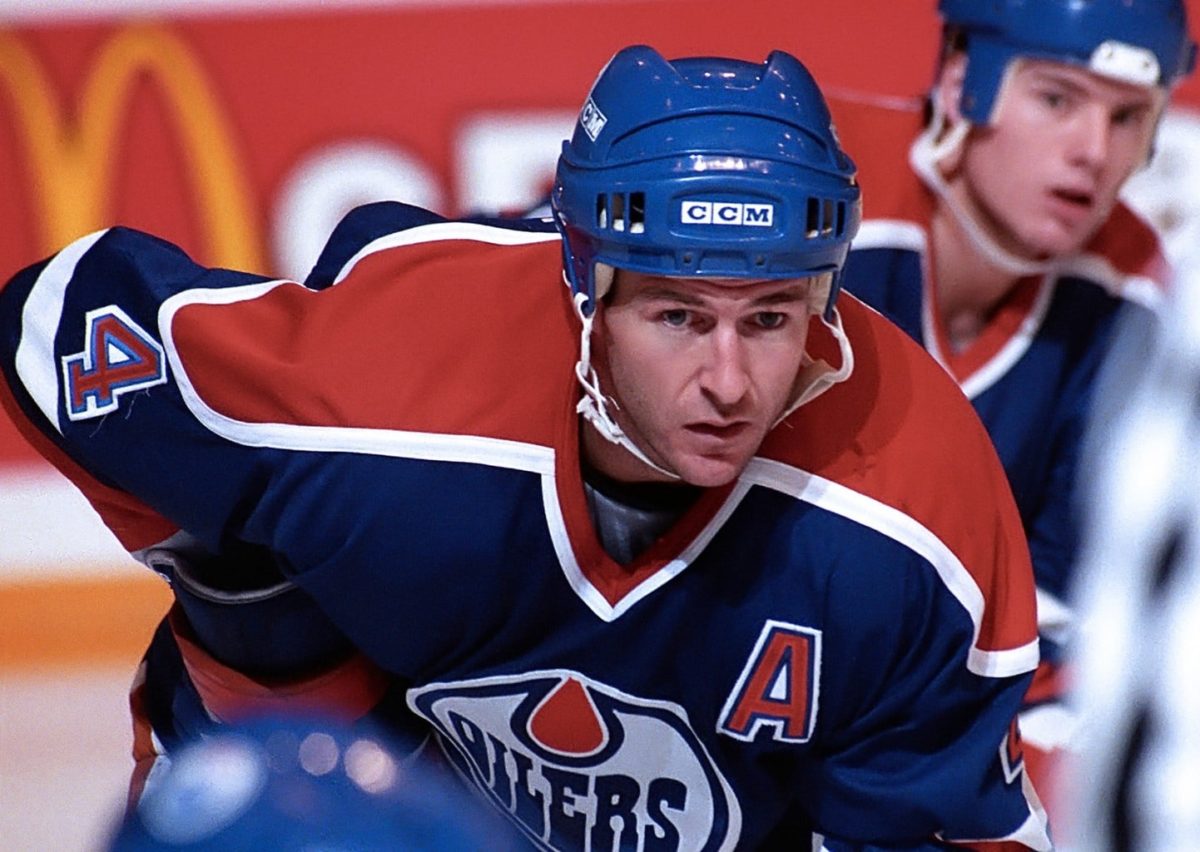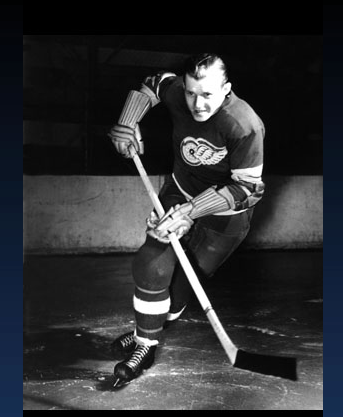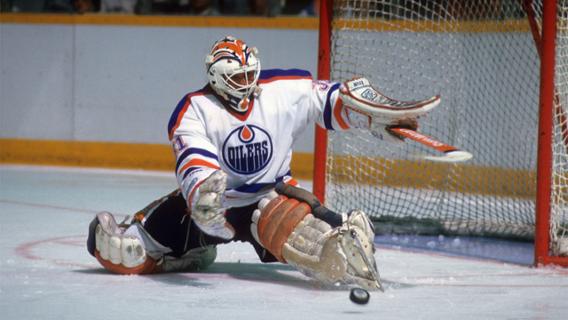Yesterday in Hockey History: Sept. 27
Tomorrow in Hockey History: Sept. 29
On this date, one of Canada’s most unlikely heroes became a legend after his third straight game-winning goal. Also, two Hockey Hall of Famers were born while one signed his first National Hockey League contract on his way to becoming one of the greatest undrafted free agents ever. It’s time for our daily trip back through the decades to revisit all the best memories this date has given us.
Canada Completes the Comeback
After losing the first of four straight games in Moscow, Team Canada found themselves trailing the Soviet Union 3-1-1 in the Summit Series. On Sept. 28, 1972, they won their third straight one-goal game to claim victory in the most memorable set of international games ever played.
The first hurdle the Canadians had to clear was a last-minute switch in officials. After Swedish-born referee Uve Dahlberg fell ill with an alleged case of food poisoning, the controversial West German officials from Game 6 were assigned the all-important final game. After Canada threatened to boycott the contest, an agreement was reached where both teams could choose one referee.
Canada’s worries about the officiating were only exasperated as they were called for 16 penalty minutes just 4:10 into the game, including a 10-minute major and game misconduct for J.P. Parise after arguing a questionable call and threatening to hit referee Josef Kompalla over the head with his stick. Alexander Yakushev gave the USSR an early 1-0 by scoring on an early 5-on-3 advantage.
Three minutes later, Canada was on a power-play of their own, and Phil Esposito evened the score at 1-1. The Soviets grabbed a 2-1 lead when defenseman Vladimir Lutchenko scored a power-play tally later in the period. Brad Park sent the game into the first intermission knotted up by finishing off a great passing play late in the opening frame.
The Soviet Union took a 3-2 lead, just 21 seconds into the middle period, thanks to a lucky bounce that caught goaltender Ken Dryden out of position. The USSR took the momentum from the goal to apply extreme pressure, but Dryden rebounded nicely to keep his team in the game for the time being.

Midway through the period, defenseman Bill White drew Canada even. However, White’s goal did very little to slow down the Soviet attack. Yakushev scored his second goal of the night just over a minute later. Valery Vasiliev doubled the USSR’s advantage, which they held going into the final 20 minutes of play.
Esposito struck for a second goal early in the third period to bring Team Canada to within one goal. He was vital in Canada tying the game with seven minutes to play as he fought off two defenders to get the puck on the net. Goaltender Vladislav Tretiak made the initial save, but Yvan Cournoyer was “Johnny On-the-Spot” and knocked home the rebound to tie the score.
With time winding down, Canada was desperately trying to find one more goal. If Game 8 ended in a tie, the Soviets would win the Summit Series because they had scored one more goal. Then, with just 34 seconds left to play, Paul Henderson scored the most famous goal in Canadian hockey history.
Henderson was not added to Canada’s roster to be an offensive star, but he became a national hero. He scored the game-winning goals in each of the final three games of the Summit Series and likely has not had to pay for a drink in Canada since this date.
Rangers Bring in Boucher
Just days before the New York Rangers began their inaugural season in the NHL, on Sept. 28, 1926, they acquired one of their first star players. After spending the 1921-22 season with the Ottawa Senators, Frank Boucher went to play in the Pacific Coast Hockey League (PCHL).
On this date, the Rangers purchased Boucher’s contract from the Vancouver Maroons and added him to their roster. He played 533 games over the next 13 seasons, scoring 152 goals and 414 points. He helped the Rangers win the Stanley Cup in 1928 and 1933.
Boucher won the Lady Byng Trophy for being the most gentlemanly player in the game, seven times in an eight-season span. The donor of the trophy, Evelyn Bing, let Boucher keep the original trophy and donated a new one to the league. Upon his retirement, Boucher spent a total of 10 seasons as head coach of the Rangers.
Ciccarelli Inks His First NHL Deal
On September 28, 1979, the Minnesota North Stars signed undrafted free agent Dino Ciccarelli. The entire league passed on him at the 1979 NHL Entry Draft after breaking his leg during his final junior season with the London Knights.
In 1981-82, his first full season in the NHL, Ciccarelli scored 55 goals and 106 points. He played 602 games for the North Stars, scoring 332 goals and 651, before being traded to the Washington Capitals, in 1989, for Mike Gartner and Larry Murphy.
His 19-season career also saw stops with the Detroit Red Wings, Tampa Bay Lightning, and Florida Panthers. He retired in 1999 with 608 goals and 1,200 points in 1,232 games. Ciccarelli was inducted into the Hockey Hall of Fame in 2010.
Pair of Moves for Oilers
The Edmonton Oilers signed defenseman Kevin Lowe on Sept. 28, 1996, after spending the previous three seasons with the Rangers. This was his second stint with the Oilers, who drafted him in the first round (21st overall) of the 1979 NHL Entry Draft.
His first 13 seasons in the league came in Edmonton, where he won five Stanley Cups before winning a sixth with New York in 1994. He played 71 games over the next two seasons before retiring in 1998. He spent one season as Oilers head coach, in 1999-00.

On Sept. 28, 1999, Doug Weight was named the 10th team captain in franchise history. He replaced Kelly Buchberger, who wore the “C” on his sweater the previous four seasons. Weight remained captain until he was traded to the St. Louis Blues following the 2000-01 season.
Odds & Ends
If you think teams clogging up the neutral zone in today’s game makes for boring hockey, good thing you weren’t around for the early days of the league. Before Sept. 28, 1929, teams were not allowed to make forward passes in the attacking zone. On this date, the NHL allowed forward passing in all three zones for the first time. As you can imagine, this led to more goals across the league.
On Sept. 28, 1989, the Philadelphia Flyers traded center Keith Acton and goaltender Pete Peeters to the Winnipeg Jets in exchange for future considerations. However, they were traded back to the Flyers just five days later for a fifth-round draft pick and the cancellation of future considerations of a previous trade involving defenseman Shawn Cronin.
The Boston Bruins acquired forward Robert Lang on Sept. 28, 1997, from the Pittsburgh Penguins via the NHL Waiver Draft. He returned to Pittsburgh less than a month later when the Penguins claimed him off of waivers on Oct. 25, 1997. Lang scored a career-high 32 goals and 80 points with the Penguins during the 2000-01 season.
The New York Islanders claimed goaltender and two-time Stanley Cup winner Chris Osgood from the Red Wings on Sept. 28, 2001, in the NHL Waiver Draft. He played 103 games for the Islanders, going 49-39-10 with a .904 save percentage (SV%), 2.34 goals-against average (GAA), and six shutouts. He was traded to the Blues, on March 11, 2003, for center Justin Papineau and a second-round draft pick that was used to select current Devils associate coach Jeremy Colliton.
After a comeback attempt with the Calgary Flames fell short, Theoren Fleury officially announced his retirement on Sept. 28, 2009. He retired with 455 goals and 1,088 in 1,084 games, with the majority of his success coming in 11 seasons with the Flames. He also played three seasons with the Rangers and single seasons with the Colorado Avalanche and Blackhawks.
On Sept. 28, 2020, the Lightning beat the Dallas Stars 2-0 in Game 6 of the Stanley Cup Final to win their second championship in franchise history. Brayden Point’s first-period power-play goal was all the Lightning would need to secure the win; it was his 14th goal of the postseason. Blake Coleman added an insurance goal early in the second period and Andre Vasilevskiy made 22 saves for his first career playoff shutout. Defenseman Victor Hedman received the Conn Smythe Trophy for being the most valuable player of the 2020 postseason. In 25 games, he had 10 goals, 22 points, and a plus-13 rating while averaging 26:28 of ice time per contest.
Happy Birthday to You

A total of 22 players who have skated in the NHL were born on Sept. 28. The first to make his debut was Rod Smylie, born on this date in 1895, who played in 74 games with the Toronto St. Patricks and Senators during the 1920s. The most recent was in 2022 with Isaak Phillips, who is turning 24 today.
The late Syd Howe is one of two Hockey Hall of Famers born on this date. He played exactly 700 NHL games with the Senators, Philadelphia Quakers, Maple Leafs, St. Louis Eagles, and Red Wings between 1930 and 1946. He scored 237 goals and 529 points while winning three Stanley Cups in Detroit.
Hall of Fame goaltender Grant Fuhr was born on Sept. 28, 1962, in Spruce Grove, Alberta. He was drafted by the Oilers with the eighth overall pick of the 1981 NHL Entry Draft. He made his debut the following fall and played 48 games during the 1891-82 season. He spent 10 seasons in Edmonton, playing 423 games, going 226-117-54 with a .883 SV% and 3.69 GAA. He won four Stanley Cups with the Oilers during the 1980s.
Fuhr was traded to the Maple Leafs on Sept. 19, 1991, along with fellow Hall of Famer Glenn Anderson. He also had tours of duty with the Buffalo Sabres, Los Angeles Kings, Blues, and Flames. He retired in 2000 after 868 NHL appearances and 403 wins, the 12th most in league history.

Other notable players born on this date include Barry Gibbs (77), Don Edwards (70), Bob Miller (69), Steve Kasper (64), Brian Rafalski (52), Dustin Penner (43), Tom Sestito (38), and the late Art Wiebe and Ray Emery.
*Originally constructed by Greg Boysen
